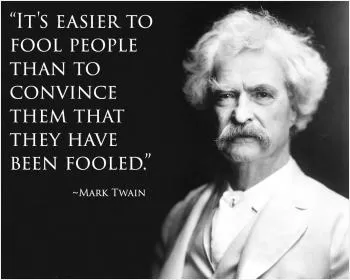He who asks is a fool for five minutes, but he who does not ask remains a fool forever

He who asks is a fool for five minutes, but he who does not ask remains a fool forever
The proverb "He who asks is a fool for five minutes, but he who does not ask remains a fool forever" emphasizes the importance of seeking knowledge and information through asking questions. It suggests that it is better to ask a question and risk appearing foolish for a short period of time than to remain ignorant indefinitely by not seeking clarification.Asking questions is a fundamental aspect of learning and growth. It shows a willingness to admit one's lack of knowledge and a desire to expand one's understanding. By asking questions, individuals can gain new insights, perspectives, and information that they may not have otherwise been aware of. It allows for a deeper understanding of a subject or situation and can lead to personal and professional development.
On the other hand, choosing not to ask questions can result in missed opportunities for learning and growth. By remaining silent and not seeking clarification, individuals may continue to operate under false assumptions or misunderstandings. This can lead to mistakes, miscommunication, and missed opportunities for personal and professional advancement.
The fear of appearing foolish or incompetent can often prevent people from asking questions. However, it is important to remember that asking questions is a sign of intelligence and curiosity. It shows a willingness to learn and improve, rather than pretending to know everything.
In a world that is constantly changing and evolving, it is essential to be open to new information and perspectives. By asking questions, individuals can stay informed, adapt to new situations, and continue to grow and develop throughout their lives.












 Friendship Quotes
Friendship Quotes Love Quotes
Love Quotes Life Quotes
Life Quotes Funny Quotes
Funny Quotes Motivational Quotes
Motivational Quotes Inspirational Quotes
Inspirational Quotes